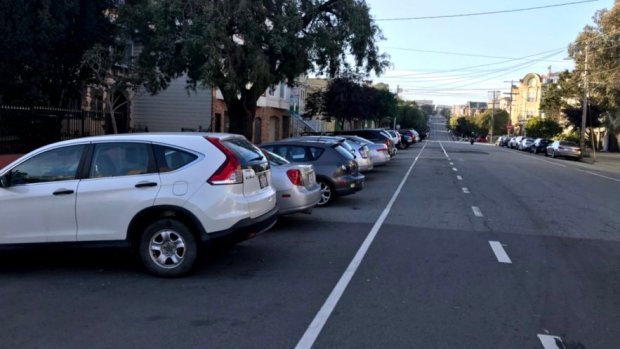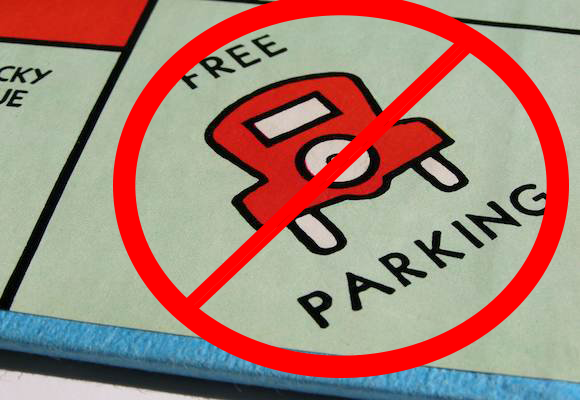Mayor de Blasio last year wasted more energy on fiddling with alternate-side parking regulations than he put toward any other transportation initiative. The next mayor, however, has the ability — and the responsibility — to fix that wrongheaded calculus, which is the crux of what is ailing our streets.
And the root of the problem is our addiction to “free" parking.
Putting a price on parking — through a combination of residential parking permits and increased metering — will help us balance the budget, reduce our carbon emissions, improve public health, and address economic inequality. It is the first step in unlocking for all New Yorkers the full potential of our city’s single biggest use of land.
Simply put, “free" parking constitutes the biggest giveaway in New York City; it must end. The average market rate for an indoor parking space in our city is more than $6,800 a year, but for the low, low price of a couple laps around the block, anyone can have curbside space for the cool price of zero dollars and zero cents. It’s a pretty sweet deal for the minority of New York households that own a car — and a pretty awful one for all New Yorkers that shoulder the cost and deal with the burden.
Opponents of metering and permits will raise three common objections. First, they will claim that drivers already pay for streets and parking through gas taxes and registration fees. In truth, however, only about half of the cost of maintaining roads comes from those sources, which means that we all pay for (and subsidize) roads, not just drivers.
Next, opponents will claim that meter fees strike another blow at cash-strapped New Yorkers. Local motorists spend an average of 107 hours a year looking for parking, at an average cost of $2,243 in time, gas, and emissions per driver. This sum represents the true cost of “free" parking that we’re already paying. Metered or permitted parking can help smooth demand and reduce congestion, as well as the deleterious effects that come with it — such as road carnage and pollution.

Last, we’ll hear about the impossibility of any such scheme, that we’re not Barcelona or Amsterdam or some other trendy target of ire. The protectors of the status quo will contend that there is just something elemental to this city about how we park and drive and that nothing ever can change it.
We saw this argument fail in the last decade when Times Square was pedestrianized, and it will fail again in this decade, too. History is on our side: The city didn't even allow overnight street parking in Manhattan until 1950, well within living memory of many New Yorkers.
Correctly pricing parking is important because it allows us to begin to take some of the incredible amount of land we devote to vehicle storage and repurpose it for community-building uses.
Each 208-square-foot parking space that we can reclaim is an opportunity for a pocket park, a community garden, a public bathroom, a clean garbage-collection point, an art installation, a residential loading zone, or any number of uses that benefits our community more than a stationary hunk of metal on the curb. The biggest opportunity to transform our city is all around us, and the next mayor can make it reality if he or she chooses.
Almost every mayoral candidate who answered Streetblog’s recent questionnaire on metering these free spaces agrees with the goal of reimagining our free-parking paradigm and making better use of this limited resource. This change of political perspective is a remarkable shift, but we’re not there yet. New York’s next mayor needs to champion nothing less than the end of the “free pass” of “free parking.”
Any New Yorker knows that such a shift won’t be easy. It will take courage and vision, but this moment requires nothing less of our leaders.
Ben Guttmann is a former candidate for City Council, member of Queens Community Board 2, co-founder of marketing agency Digital Natives Group, and adjunct lecturer at Baruch College. Twitter: @benguttmann_ny







